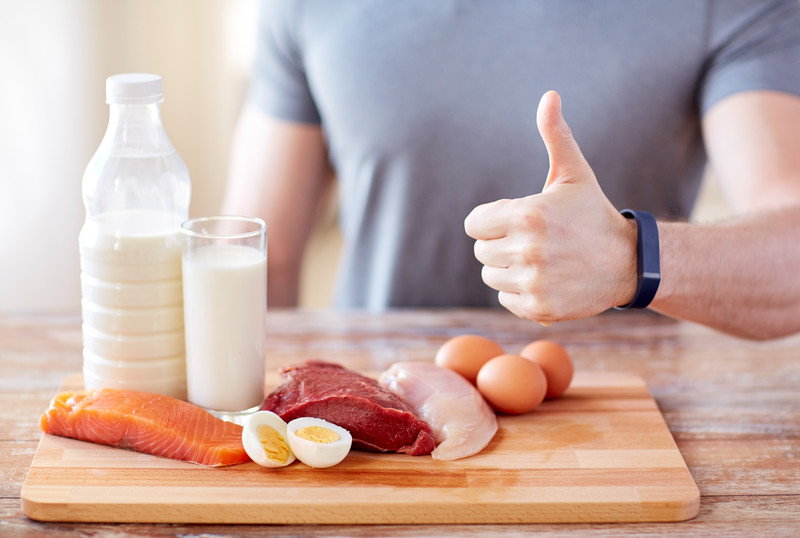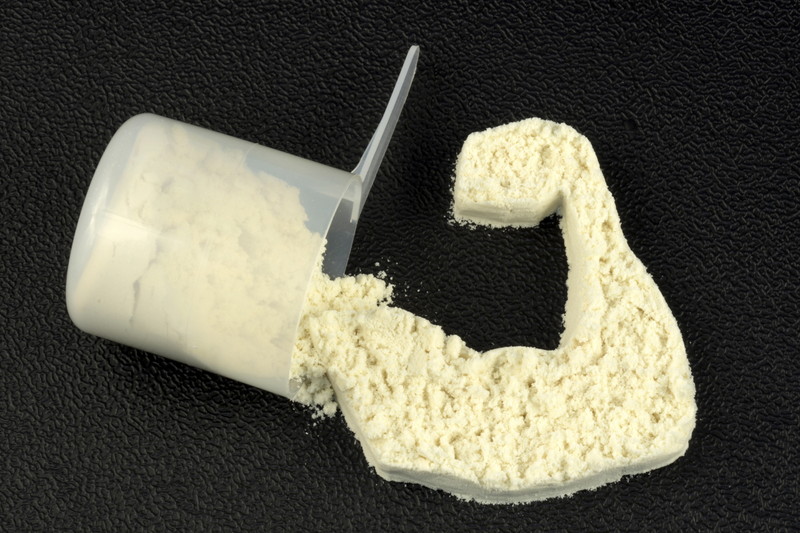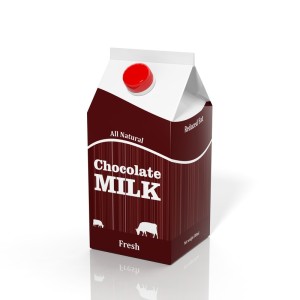Look at any fitness website, health and fitness magazine or CrossFit forum and you would be totally forgiven for thinking the most essential part of a diet for any gym-goer was a protein shake.
But is this really true?
Especially when people are guzzling protein shakes down by the bucket full.

Is processed protein powder really essential for building muscle and for recovery?
Or is it just a huge marketing ploy to make millions out of whey, once considered a waste product in the process of making cheese and often used for feeding pigs. I should point out here, I am certainly not against the higher and better use of a waste food product in a world where millions are starving – it is just the process and are people being exploited? In other words…..company profits over people’s real dietary needs; which one comes first?
It seems to me most people take it for granted these days that we need to take protein supplements (over and above good diet) to get the most out of our workouts and to build muscle (apart from all the other things promoters say protein shakes are good for).
It is also interesting to note that in an ABS Nutrient Intakes Survey, it was found that nearly all Australians, 99% actually, were eating around twice the recommended protein requirement per day……..and that is without taking any supplements. Just goes to show the power of marketing for things we don’t need.
Dr Gabe Merkin, who I have also found to be an extremely reliable source of medical and fitness related information, is able to provide us with plenty of good evidence that Extra Protein Does Not Enlarge Muscles.
I also found in this informative article in “The Conversation” recently, “the decision to use them (protein supplements) is based more on slick marketing claims than anything else; protein supplements offer few real performance benefits that an athlete’s normal diet isn’t already delivering.”
Much more of my research also shows reliable evidence suggesting there is a high possibility most of it is just a huge marketing ploy designed by big companies (small too) who want to get rich at our expense. This agrees with what is said in the article above.
It wouldn’t be the first time, after all, that ordinary folk like myself and most of my readers have been blinded by the alluring marketing hype.
Considering the fact the protein supplement industry is not regulated by the FDA in the USA and is pretty loosely governed in Australia, this does start to put forward some interesting questions.
You see, protein powder (as most people know it) is a relatively recent invention……just like most supplements.
Although one learned gent at the gym this morning pointed out to me that if we take note of the urban myth – little miss muffet sat on a tuffet eating her curds and whey – which reputedly dates back to the late 16th century – then consumption of protein supplements is certainly nothing new (except for the marketing and “value” adding – the latter being questionable).
On a more serious note, let’s have a look at what Tim Crowe has to contribute. Tim is Associate Professor in Nutrition, Deakin University. In his article; Health Check: here’s what you need to know about protein supplements, he says, “The decision to use them is based more on slick marketing claims than anything else; protein supplements offer few real performance benefits that an athlete’s normal diet isn’t already delivering.”
I find it hard to argue with this comment.
When I was young people were able to build fantastic physiques, as well as stay very healthy just by eating “real food” and exercising. There was no “powder in a tub” with huge promises of a beach body that most of us can only dream about. A big juicy piece of grass fed steak and a glass of “real” milk were the protein supplements we consumed back then……and they are still widely available today.
In fact, many experts are now suggesting protein supplements are only needed by high level athletes such as triathletes, Olympians, professional footballers, bodybuilders and so on.
1. Do You Need to Eat a Lot of Protein to Build Muscle?

Reading all the marketing hype you would be compelled to think so but Sarah Dacres-Mannings, a spokesperson for Sports Dietitians Australia tells us, “You need a certain amount of protein, but less than you might think.”
In Fact Buster stories on ABC Health & Wellbeing Sarah also goes on to say, “The majority of supplements are not based on scientific studies, most are too high in protein, provide insufficient carbohydrate and are far too expensive.”
Also read this article: Do You Really Need Protein Supplements?
In fact, Sarah feels it is more than sufficient to have good and healthy nutrition after a workout, rather than supplementation. Things such as a lean meat sandwich, two glasses of low fat milk, tuna with pasta or a healthy, low fat smoothie should be more than enough for the average person.
Taking a protein supplement could, in fact, put people into protein overload which may then contribute to increased body fat levels (probably not the result you are really looking for, is it?).
2. Protein and Functional Health
This raises the question of How Much Protein Should You Eat Per Day? and it is also well worth reading about the Protein Requirements and Recommendations for Older People.
“Most people don’t need protein supplements, but they can be useful for professional athletes and bodybuilders.”
The above statement suggests there is actually no need to take any form of supplementation. This idea is further supported by other experts, who believe we actually consume more than sufficient protein in our diet.
In fact, the Victorian Governments Better Health Channel experts believe we simply need more education about what we actually consume and that “Most Australians eat far more protein than they actually need, so deficiencies are rare.” I suspect this is also the case for most other modern westernized countries as well.
3. Milk Boosts Muscles After a Workout
It is no secret we all need to exercise regularly, and it is also no secret that, the older we get, the more important regular exercise becomes.
However, this is where the entire protein supplement debate rears its ugly head once again.
You would tend to think, if we are older, we are also more fragile and brittle, so it is even more important to supplement on protein. While this, in many cases, is most certainly true, what is not true is that this quite common problem can only be solved by taking protein supplements.
Rather, we can achieve it through our diet and, as it turns out, Dr Karl tells us “milk boosts muscles after a workout” so, it is really all we need.
“One surprising contender has turned out to be plain old milk. One study on men showed that over a 10-week period, if they drank just two cups of skim milk after each muscle workout, they would gain almost twice as much muscle as if they drank soy drinks with the same amount of protein.”
A similar, while much smaller, study was performed on women and the results were almost identical.
This would prove, therefore, that two glasses of skim milk after a workout is as effective, if not more effective, than taking supplements. Considering the inherent dangers of supplementing with protein products, opting for milk is a much better option.
4. Is Protein (of any sort) After Exercise Really Needed at All?
The subject of protein remains a controversial one, with experts going backwards and forwards about whether or not protein is needed. The reality is that science has shown us protein is absolutely vital in recovery and growth of muscle tissue.
However, this tissue does not care where the protein comes from.
Whether you drink a glass of milk, eat a hard-boiled egg, take a protein supplement or anything else, is irrelevant to your muscles. It is also important to remember that more protein is not necessarily better for you.
The human body needs just 10 to 20 grams of protein in order to sustain muscle growth. The important thing is to know “The Truth about Post-Workout Shakes and Do you really need to eat protein after your workout?”
5. Facts and Fiction – Why it is all so Confusing
I suggest you read the link above about post workout shakes and then read the following quote from another source which talks about What to Eat Before, During, and After Exercise and you will soon see what I mean and why it is all so confusing.
Who do you believe?
“Choose protein powders made from whey protein or milk proteins. Use them within 30 minutes after exercising to provide needed amino acids to muscles.”
If you consume the proteins later than that, the muscles will have already stopped needing protein at all.
As such, they will not have any benefit anymore. Additionally, it is equally important to consume plenty of carbohydrates before and during a workout.
6. The Power of Chocolate Milk
Well the “good oil” reported in the Daily Mail is; Forget sports drinks, CHOCOLATE MILK is best after a workout: Beverage has ‘all the nutrients the body needs to recover‘
 Chocolate lovers all over the world will be pleased to hear that apparently, one of the best ways to top up on protein after a workout is not some sort of fancy protein supplement but rather, a good old bottle of CHOCOLATE MILK.
Chocolate lovers all over the world will be pleased to hear that apparently, one of the best ways to top up on protein after a workout is not some sort of fancy protein supplement but rather, a good old bottle of CHOCOLATE MILK.
It is reported, “Scientists have found that the beverage has all the nutrients that your body needs to replenish itself from exercising. The protein helps the muscles recover and the calories replace those burned when you are on the treadmill.”
Unfortunately for the chocolate gourmands among us, it does have to be low fat but of high quality.
Research has shown chocolate milk does an equally good, if not better, job at restoring protein levels in the body.
This means all the protein bars, powders, pills and balls, an industry worth several billion dollars a year, are actually completely unnecessary and expensive to boot.
It is just as effective to simply have a nice glass of chocolate milk, which is far more enjoyable as well. My only comment is just watch the sugar content.
Conclusion
Do we need protein after a workout?
Absolutely!
But do we need protein powders, shakes, sports bars and other related products?
Absolutely not!
All you really need is to consume one 300 ml (or 8 oz) bottle of chocolate milk (or something similar). This should not have any added Omega 3 (it pushes the calorie content up too high), nor should it contain added sugar (but many do).
Low fat chocolate milk, as it now appears, is the gold standard when it comes to post-exercise recovery, and not protein supplements. Why not put your old shaker to good use and make your own from low fat milk and pure raw cacao powder?
Further References and Reading
At the end of the day it is totally up to you which road you choose to take. I just provide the options. Personally, I have been through the phase of being lured into regularly taking protein shakes but these days, through my own research and some trial and error, I find good diet takes care of all my protein requirements (without the need for overpriced supplements).
Because this is such a controversial and interesting subject I have added the following for your further reading (in the interests of saving you money and helping you improve your health).
If you are a vegan bodybuilder or athlete or if you feel whole-food, plant-based diet for optimal results is the way to go then read this article from T. Colin Campbell at the Center for Nutrition Studies – No Whey, Man. I’ll Pass on the Protein Powder.
Supplements in Sport – Why are they so tempting? This is an excellent and informative article from the Australian Institute of Sport: “The bottom line is that supplements can be marketed with very little control over the claims and messages they provide, and many companies appear to take full advantage of this.” It also provides some great information on “where do supplements fit into the total nutrition package for the athlete or exercising person?”
4 Myths About Protein and Working Out: A discussion which, among other things, asks the reader, “Are we getting enough protein in our diet? Do we need to load up on it after a workout? Two experts weigh in on the craze.” It also offers a balanced view on whether the average person going to the gym to keep fit needs protein to the extent recommended by the purveyors of protein powders with their glossy and irresistible marketing.
Some Other Random Quotes & Comments from my Research on Protein Supplements.
Testimonials from athletes provide a key form of advertising used by manufacturers of supplements and sports foods.
Sports foods generally cost more than a similar everyday food.
Sports scientists are impressed only by the results of scientific studies conducted under a special code of rules, and published only after a review process by other scientists. This process costs time and money.
Unfortunately, most supplement companies don’t invest in this research – after all, they can successfully sell their products to a public who don’t appear to demand real proof of their claims.
Furthermore, most of the research that has been undertaken has failed to support the claims of the majority of nutritional ergogenic aids.
And if you would like another well researched and evidence based view on exactly how much protein to eat per day to build muscle and lose fat, and which types of protein are best, then have a listen to this podcast by Mike Matthews. It’s well worth your time.
And finally, I hope this article has opened a Pandora’s box of thoughts, ideas and points of discussion for you and helps with your “real” dietary needs saving you a heap of hard earned cash. If you find the information helpful then please share it with your friends and leave me a quick message.
Also, here is another complimentary article I wrote you might like to read about the skinny on protein supplements – do you really need them?
See you in the gym.
Cheers – John – your Active Ageing Mentor and Coach
P.S. Help your friends save a few dollars…….like and share. Thanks.
John, thanks for the article. I couldn’t agree more – a quality diet should negate the need for all sorts of supplements but then what would happen to that particular industry? It’s a bit like all the expensive equipment in the gyms around the place that is really not necessary. Most people should be able to achieve a high level of fitness with not much more than their own bodyweight – but then what would happen to the gym industry?
Thanks Dennis, I really appreciate your comments………especially about diet. I also agree, body-weight exercise is a great way to get fit but I don’t totally agree with the notion that we don’t need gyms. I can think of plenty of good points in favour of the “for case” but it is far too much for me to comment on here. However, it is a great idea for my next article. Thanks for the idea.